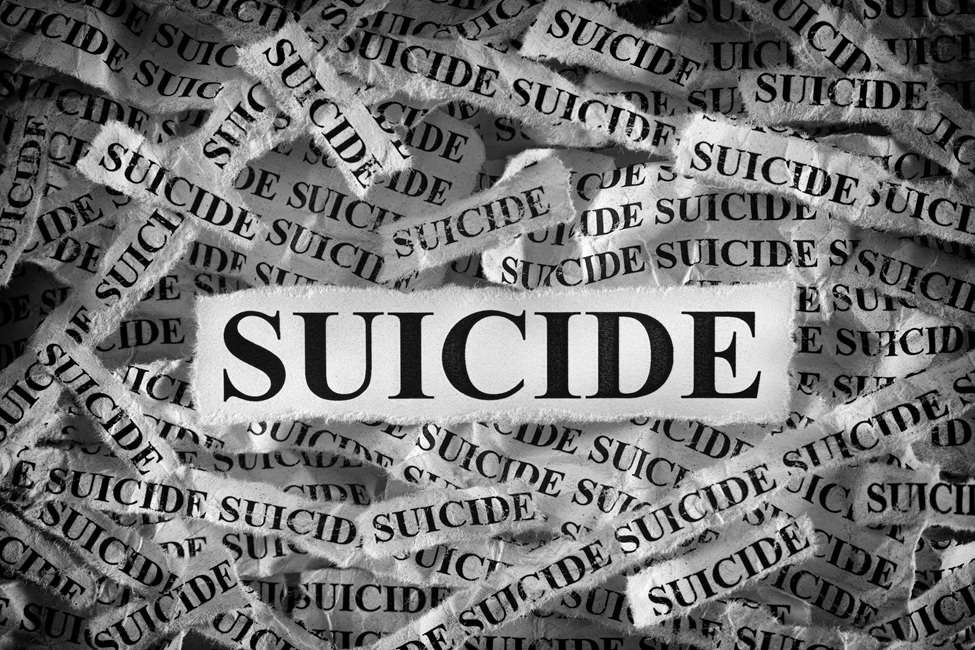Suicide Risk Elevated Among Young Adults with Disabilities

Suicide is the third leading cause of death among young adults. But for those with intellectual and developmental disabilities, the crisis is even worse.
Suicide remains one of the most pressing public health crises affecting young adults today, with devastating consequences. According to the United States Centers for Disease Control and Prevention, suicide is currently the third leading cause of death among individuals aged 18 to 25, with a 51% increase in suicide deaths between 2000 and 2021.
While this trend is deeply concerning for the general population, it is even more alarming for young adults living with intellectual and developmental disabilities (IDD) – a group long overlooked in suicide prevention efforts.
Research by Florida Atlantic University and collaborators, published in the journal Current Psychology, sheds light on the growing concern of suicidality among young adults with IDD and the significant gaps in existing public health responses. Researchers conducted an extensive review of the literature to explore the elevated risk factors, theoretical frameworks, and practical prevention strategies urgently needed to address suicide in this vulnerable population.
“For too long, there has been a misconception that individuals with IDD are somehow protected from suicidality due to perceived cognitive limitations,” said Alexander M. Fields, Ph.D., senior author and an assistant professor of counselor education within FAU’s College of Education. “However, emerging data clearly shows that young adults with IDD may actually face heightened suicide risk due to social isolation, abuse, trauma and limited access to appropriate care and education.”
The researchers identify multiple contributing factors that may elevate suicide risk for individuals with IDD, including:
- Lack of access to education or employment opportunities
- High rates of trauma, abuse and bullying
- Increased dependence on caregivers
- Impulsivity and emotional dysregulation
- Social exclusion and stigma
A key barrier to effective prevention is diagnostic overshadowing, where symptoms of mental health disorders are misattributed to a person’s disability, leading to underdiagnosis or misdiagnosis of suicidal ideation. Moreover, standard suicide screening tools are often developmentally inappropriate for individuals with IDD, further compounding the issue.
To bridge this critical gap, the research draws upon two theoretical models – the Behavioral Pathway Model (BPM) and the Suicidal Barometer Model (SBM) – to propose a more inclusive approach to assessing and managing suicide risk in this population. These models were illustrated using a fictional case study of “Anthony,” a 21-year-old with autism and mild intellectual disability, demonstrating how structured frameworks can guide real-world prevention strategies.
“Our goal is to equip caregivers and helping professionals with practical tools and knowledge to identify warning signs, conduct effective assessments and implement targeted interventions,” said Fields. “This includes training on communication strategies, appropriate use of adapted assessment tools, and recognizing that signs of suicidality may present differently in people with more severe disabilities.”
The researchers also discuss policy and public health recommendations for supporting young adults with IDD, including:
- Training health care providers on IDD-specific suicide risk factors
- Developing and validating screening tools sensitive to cognitive and communicative differences
- Ensuring crisis hotlines and emergency services are accessible and tailored to individuals with IDD
- Establishing community-based support networks to reduce stigma and isolation
- Funding additional research to develop inclusive and evidence-based interventions
This call to action is particularly urgent as mental health service access continues to lag for the IDD population, even as suicide risk rises. The researchers advocate for increased investment in both clinical and public health infrastructure to support long-term prevention efforts.
“Effective suicide prevention for young adults with IDD demands more than adapting existing models – it requires a wholesale reimagining of how we assess, support and protect these individuals,” said Fields. “From school-based interventions to health care provider training, every level of the system needs to be part of the solution.”
This research marks a significant step forward in suicide prevention research by prioritizing the needs of individuals who are too often left out of the conversation. With continued attention, collaboration and innovation, the researchers believe it is possible to turn the tide and build a more inclusive mental health support system.
Study co-authors are Olivia J. Lewis, Ph.D., Oregon State University; Rebecca B. Smith-Hill, Ph.D., University of South Carolina; Megan Reynolds, Ph.D., Viriginia Commonwealth University; Rachel Gilreath, Ph.D., University of Wisconsin – Oshkosh; and Madeline Castle, Ph.D., Mississippi State University.

Alexander M. Fields, Ph.D., senior author and an assistant professor of counselor education within FAU’s College of Education.
-FAU-
Latest News Desk
- FAU Lab Schools Shine Nationwide in Niche RankingsA.D. Henderson University School and Florida Atlantic University High School ranked among the best in the country and state, according to Niche in its 2026 rankings.
- FAU Joins Neuroarts Academic Network to Bridge Art, Brain and HealingFAU will help to lead this global effort to harness aesthetic experiences for brain health, as one of just two Florida universities and about 35 worldwide in the network's initial working group.
- Chatbots the New 'Doc?' Exploring AI in Health Behavior CoachingChanging habits is tough. AI tools like ChatGPT now simulate motivational interviewing (MI), showing promise - but can they match MI's core and spark lasting change? FAU researchers explore the potential.
- FAU's MBA in Sport Management Ranks Third in Global RankingsFlorida Atlantic University's MBA in Sport Management program online ranked No. 3 worldwide for 2025, according to SportBusiness, a London-based sports intelligence and analysis firm.
- FAU Hosts 'The Florida Jewish Experience' SymposiumThe Jewish Studies Program in Florida Atlantic University's Dorothy F. Schmidt College of Arts and Letters presents "The Florida Jewish Experience" symposium.
- Study First to Show if Nesting Heat Affects Sea Turtle Hatchling 'IQ'FAU researchers are the first to train loggerhead sea turtle hatchlings in a maze using visual cues to test their learning and ability, and to determine if high nest temperatures impair their cognition.






